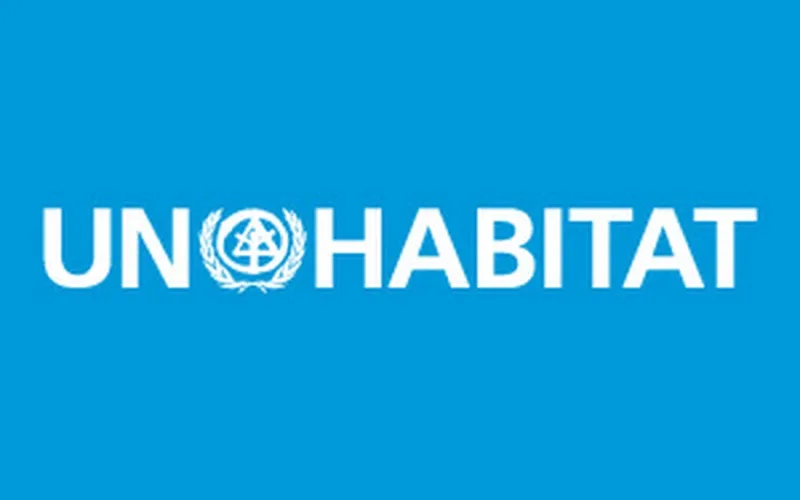Public Space and Placemaking. Evaluating the Impact on Youth Health and Wellbeing
S P E C I A L I S S U E
to be launched at 12th World Urban Forum in Cairo, Egypt, Nov 4-8th, 2024
CALL FOR PAPERS
This issue will contribute to the Young Gamechangers Initiative (YGI) led by UN-Habitat and founded by Fondation Botnar. This initiative aims to improve young people’s urban health and well-being through their active digital engagement in urban governance and the design of inclusive public spaces. Specifically, this call for papers seeks articles, research, and personal stories that assess the impact of youth engagement in designing public spaces, focusing on their health and well-being, the relationship to city governance, the application of digital technology, and the interface with city systems.
This special issue of The Journal of Public Space on ‘Public Space and Placemaking: Evaluating the Impact on Youth Health and Wellbeing invites writings, reflections, research, case studies and photo essays related to the cities and public spaces with a focus on intermediary cities in the global south. We invite emerging and young scholars, designers, planners, city practitioners, youth organizers, advocates, and storytellers to offer critical and innovative contributions to understanding the impacts and practices of placemaking in plural and diverse urban spaces, focusing on the transformative implications for youth health and wellbeing.
We encourage collaborative approaches to the submission, noting that selected articles may be presented at the 12th World Urban Forum in Cairo, Egypt in 2024.
With the intention to give a voice to young researchers, this special issue collects full research articles (max 8.000 words) and shorter essays, case studies and photo essays (max 3.000 words) from scholars under the age of 32 years. In addition, we are also inviting drawings and poetry submissions that reflect the journal themes from youth within the range of 15 and 24 years.
This issue will contribute to the critical assessment of the importance of public spaces on youth health and wellbeing, introduce existing and emerging digital tools and explore the interface between youth roles and city systems. Several sessions are to be held to mentor authors, and all authors are to be connected to the updates of the YGI. The YGI was launched at the Children & Youth Assembly of the 11th World Urban Forum in June 2022 and is being implemented with youth and city partners in three pilot cities, Armenia in Colombia, Jatni in India & Bargny in Senegal.
REFERENCES
Bibliography / YGI Literature Review Available at Mentor Sessions
UN-Habitat’s public space and governance projects for/with Youth:
– Her City Toolbox for participatory public space planning and design
– Her City digital tool – Young women included in urban planning
– Minecraft video game used to design public space in more than 25 developing countries
UN-Habitat’s public space readings:
– Global Public Space Toolkit: From Global Principles to Local Policies and Practice (2015)
– City-Wide Public Space Strategies: A Guidebook for City Leaders (2020)
– City-Wide Public Space Strategies: A Compendium of Inspiring Practices (2020)
Academic reading:
– Palazzo, D. and Mehta, V. (2020), Companion to Public Space, Abingdon, New York, Routledge
– Nissen, S., Prendergast, K., Aoyagi, M. et al. (2020) Young people and environmental affordances in urban sustainable development: insights into transport and green and public space in seven cities, Sustainable Earth Reviews, 3, 17. DOI: https://doi.org/10.1186/s42055-020-00039-w
– Marshall, B. D. et al (2014) Social Capital and Vulnerable Urban Youth in Five Global Cities, Journal of Adolescent Health, 55, 6, supplement. DOI: https://doi.org/10.1016/j.jadohealth.2014.08.021
IMPORTANT DATES AND DEADLINES
15 September 2023: Call for Papers launched
10 October 2023 (world mental health day): Webinar/mentoring session >>> Fill the form to register to the webinar
1 November 2023: Deadline for abstract submission
Please kindly submit your abstract proposal to: submission@journalpublicspace.org
Only authors who will receive a notification of acceptance of abstracts will be entitled to submit full papers.
15 November 2023: Notification to authors of selected abstracts
31 January 2024: Deadline for online submission of full papers
10 March 2024: Notifications to authors of comments from peer reviewers
30 April 2024: Submission of the final paper ready for publication
August 2024: Internal deadline publication (expected)
September-October 2024: Production phase and final layout
2 November 2024 – WUF12: Official publishing
AUTHOR’S GUIDELINES
The online submission for authors whose abstract proposal has been accepted must be a short or full paper that has not been previously published nor is currently under consideration for publication elsewhere. The Journal of Public Space takes issues of copyright infringement, plagiarism or other breaches of best practice in publication very seriously, that’s why we use a Plagiarism Detection Software to verify originality of all submissions.
For this special issue we accept:
- Research articles (academic): full papers between 5.000 and 8.000 words, the word limit includes notes and bibliographical references. The submission must include also an abstract of max 300 words, up to five keywords, and up to 20 copyright free images with captions.
- Case studies and essays (non-academic): short papers of max 3.000 words, the word limit includes notes and bibliographical references. The submission must include also an abstract of max 300 words, up to five keywords, and up to 20 copyright free images with captions.
Submissions are accepted only on the online platform of The Journal of Public Space, read the guidelines.
Authors need to register to make a submission.
For any information regarding the submission, please write to: submission@journalpublicspace.org
For any questions related to the peer review process, please write to:
Dr Luisa Bravo Editor in Chief | The Journal of Public Space
luisa.bravo@journalpublicspace.org
Dr Cherie Enns, RPP Guest Editor | The Journal of Public Space
Cherie.enns@UN.org
